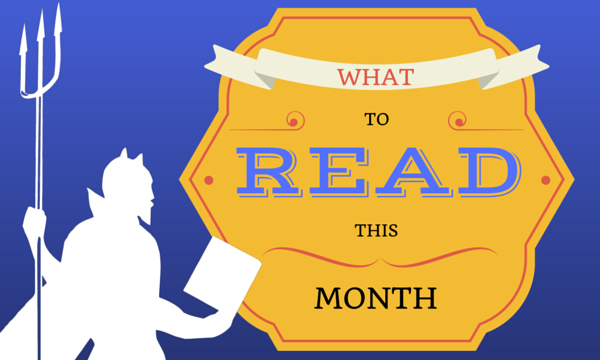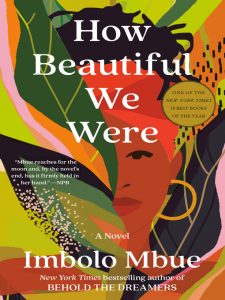Looking for something new to read? Check out our New and Noteworthy, Current Literature and Overdrive collections for some good reads to enjoy! Here is a selection of books you will find in these collections!
 The School for Good Mothers by Jessamine Chan. Frida Liu is struggling. She doesn’t have a career worthy of her Chinese immigrant parents’ sacrifices. She can’t persuade her husband, Gust, to give up his wellness-obsessed younger mistress. Only with Harriet, their cherubic daughter does Frida finally attain the perfection expected of her. Until Frida has a very bad day. Because of one moment of poor judgment, a host of government officials will now determine if Frida is a candidate for a Big Brother-like institution that measures the success or failure of a mother’s devotion. Faced with the possibility of losing Harriet, Frida must prove that a bad mother can be redeemed. That she can learn to be good. An “intense” ( Oprah Daily ) page-turner that is also a transgressive novel of ideas about the perils of “perfect” upper-middle class parenting; the violence enacted upon women by both the state and, at times, one another; the systems that separate families; and the boundlessness of love. Using dark wit to explore the pains and joys of the deepest ties that bind us, Chan has written a modern literary classic. Watch Chan discuss her novel on the Today Show and listen to her on the Lit Hub Radio podcast.
The School for Good Mothers by Jessamine Chan. Frida Liu is struggling. She doesn’t have a career worthy of her Chinese immigrant parents’ sacrifices. She can’t persuade her husband, Gust, to give up his wellness-obsessed younger mistress. Only with Harriet, their cherubic daughter does Frida finally attain the perfection expected of her. Until Frida has a very bad day. Because of one moment of poor judgment, a host of government officials will now determine if Frida is a candidate for a Big Brother-like institution that measures the success or failure of a mother’s devotion. Faced with the possibility of losing Harriet, Frida must prove that a bad mother can be redeemed. That she can learn to be good. An “intense” ( Oprah Daily ) page-turner that is also a transgressive novel of ideas about the perils of “perfect” upper-middle class parenting; the violence enacted upon women by both the state and, at times, one another; the systems that separate families; and the boundlessness of love. Using dark wit to explore the pains and joys of the deepest ties that bind us, Chan has written a modern literary classic. Watch Chan discuss her novel on the Today Show and listen to her on the Lit Hub Radio podcast.
 Nuclear Family by Joseph Han. Things are looking up for Mr. and Mrs. Cho. Their daughter, Grace, is busy finishing her senior year of college and working for her parents, while her older brother, Jacob, just moved to Seoul to teach English. But when a viral video shows Jacob trying—and failing—to cross the Korean demilitarized zone, nothing can protect the family from suspicion and the restaurant from waning sales. Struggling with what they don’t know about themselves and one another, the Chos must confront the separations that have endured in their family for decades. Set in the months leading up to the 2018 false missile alert in Hawaiʻi, Joseph Han’s profoundly funny and strikingly beautiful debut novel is an offering that aches with histories inherited and reunions missed, asking how we heal in the face of what we forget and who we remember. Learn more in The New York Times Book Review and NPR’s Book of the Day podcast interview with Han.
Nuclear Family by Joseph Han. Things are looking up for Mr. and Mrs. Cho. Their daughter, Grace, is busy finishing her senior year of college and working for her parents, while her older brother, Jacob, just moved to Seoul to teach English. But when a viral video shows Jacob trying—and failing—to cross the Korean demilitarized zone, nothing can protect the family from suspicion and the restaurant from waning sales. Struggling with what they don’t know about themselves and one another, the Chos must confront the separations that have endured in their family for decades. Set in the months leading up to the 2018 false missile alert in Hawaiʻi, Joseph Han’s profoundly funny and strikingly beautiful debut novel is an offering that aches with histories inherited and reunions missed, asking how we heal in the face of what we forget and who we remember. Learn more in The New York Times Book Review and NPR’s Book of the Day podcast interview with Han.
Tell Me Everything by Erika Krouse is the mesmerizing story of a landmark sexual assault investigation and the female private investigator who helped crack it open. In the fall of 2002, Erika accepts a new contract job investigating lawsuits as a private investigator. Erika knows she should turn the assignment down. Her own history with sexual violence makes it all too personal. But she takes the job anyway. Over the next five years, Erika learns everything she can about P. I. technique, tracking down witnesses and investigating a culture of sexual assault and harassment ingrained in the university’s football program. But as the investigation grows into a national scandal and a historic civil rights case, Erika becomes increasingly consumed. When the case and her life both implode simultaneously, Erika must figure out how to help win the case without losing herself. Read The Washington Post review and listen to her Colorado Public Radio interview to learn more.
We should have known the end was near. So begins Imbolo Mbue’s powerful second novel, How Beautiful We Were. Set in the fictional African village of Kosawa, it tells of a people living in fear amid environmental degradation wrought by an American oil company. Pipeline spills have rendered farmlands infertile. Children are dying from drinking toxic water. Told from the perspective of a generation of children and the family of a girl named Thula who grows up to become a revolutionary, How Beautiful We Were is a masterful exploration of what happens when the reckless drive for profit, coupled with the ghost of colonialism, comes up against one community’s determination to hold on to its ancestral land and a young woman’s willingness to sacrifice everything for the sake of her people’s freedom. This New York Review of Books article asks the hard questions about oil extraction, climate change, and the intersectionalities in Mbue’s visionary novel.
 Night of the Living Rez by Morgan Talty is a riveting debut collection about what it means to be Penobscot in the twenty-first century and what it means to live, to survive, and to persevere after a tragedy. In twelve striking, luminescent stories, a boy unearths a jar that holds an old curse, which sets into motion his family’s unraveling; a man, while trying to swindle some pot from a dealer, discovers a friend passed out in the woods, his hair frozen into the snow; a grandmother suffering from Alzheimer’s projects the past onto her grandson; and two friends, inspired by Antiques Roadshow, attempt to rob the tribal museum for valuable root clubs. Night of the Living Rez is an unforgettable portrayal of an Indigenous community and marks the arrival of a standout talent in contemporary fiction. Listen to Talty, a citizen of the Penobscot Indian Nation discuss how these stories came to be in his NPR interview.
Night of the Living Rez by Morgan Talty is a riveting debut collection about what it means to be Penobscot in the twenty-first century and what it means to live, to survive, and to persevere after a tragedy. In twelve striking, luminescent stories, a boy unearths a jar that holds an old curse, which sets into motion his family’s unraveling; a man, while trying to swindle some pot from a dealer, discovers a friend passed out in the woods, his hair frozen into the snow; a grandmother suffering from Alzheimer’s projects the past onto her grandson; and two friends, inspired by Antiques Roadshow, attempt to rob the tribal museum for valuable root clubs. Night of the Living Rez is an unforgettable portrayal of an Indigenous community and marks the arrival of a standout talent in contemporary fiction. Listen to Talty, a citizen of the Penobscot Indian Nation discuss how these stories came to be in his NPR interview.





